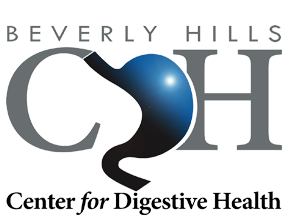Why Gallbladder Disease Should Not Be Ignored
BOOK APPOINTMENTSymptoms and infection caused by gallstone disease, in particular, are responsible for the most hospitalizations related to gastrointestinal problems. The cost of gallbladder disease treatment has risen more than 20% over the past 30 years in the U.S.
Individuals with longstanding gallbladder disease will have persistent gallstones and inflammation. Ignoring these symptoms can result in a number of significant and dangerous complications, some of which are described below.
Scarring and Stiffness of the Gallbladder
Over time, continued infection and inflammation caused by ignored gallbladder disease may result in a gallbladder that is stiff with fibrous scar tissue. This damage prevents the gallbladder from functioning properly, leading to digestive problems such as nausea, vomiting, acid reflux, gas, and chronic diarrhea.
Intestinal Obstruction
Untreated gallbladder inflammation caused by gallstones may result in an abnormal joining between the gallbladder and the intestines, called a “fistula.” This opening allows gallstones to pass into the intestine, which may cause a dangerous intestinal blockage which could result in dehydration and imbalances in electrolyte complications, infection, or even death.
Peritonitis
Peritonitis is a severe infection which occurs when bacteria contaminate the abdominal cavity. Chronic inflammation of the gallbladder caused by gallbladder disease may result in a perforation (hole) in the gallbladder. This rupture greatly increases the risk of peritonitis. Peritonitis may require surgical intervention, and, if left untreated, this infection can be life-threatening.
Gallbladder Cancer
The leading risk factor for the development of gallbladder cancer is the presence of gallstones. 75% of those with gallbladder cancer have gallstones too. Other causes of gallbladder disease or anything else that results in chronic inflammation of the gallbladder may also lead to an increased risk of gallbladder cancer. If this cancer spreads to the lymph nodes or other parts of the body, the five-year survival rate is less than 10% (meaning that less than 10 out of 100 individuals will survive for five years after initial diagnosis).
If you have experienced prior complications related to your gallbladder, or if you think that you may be suffering from pain caused by gallstones, speak to your doctor. The earlier that a physician is able to identify the presence of gallbladder disease, the earlier they can develop a treatment plan and prevent these significant complications.
If surgery is an option, then removing the gallbladder is usually the best course of treatment. The gallbladder is similar to the appendix and tonsils in that it is not a necessary organ, and it is possible to live well without it. At Beverly Hills Center for Digestive Health, we have the resources and expertise to treat your gastrointestinal problems, including gallbladder disease.
Our Blogs
Accurate Diagnostics for Anorectal Strength and Function
Back to BlogsAre you having problems producing healthy bowel movements? The problem may be the muscles around your digestive tract either not coordinating properly or lacking strength. To get your GI problems addressed as soon as possible, visit the Beverly Hills...
Pelvic Floor Dysfunction?
Back to BlogsPelvic floor dysfunction is the inability to relax and coordinate your pelvic floor muscles to allow for smooth defecation. Fortunately, there are treatments available, including biofeedback, medications, and physical therapy. Reclaim strength and comfort...
Cutting-Edge, Compassionate Care Can Help You Find Hemorrhoids Relief
Back to BlogsHemorrhoids can be debilitating and painful, but treatment is available. If you’re suffering from hemorrhoids, make an appointment at the Beverly Hills Center for Digestive Health. We offer cutting-edge, compassionate care to help you find hemorrhoids...
Call to Schedule
Our office is available to answer your questions and evaluate your symptoms.

Phone
(310) 855-0222
Fax: (949) 404-6467
Hours
Mon - Fri: 9am – 5pm
Sat - Sun: Closed